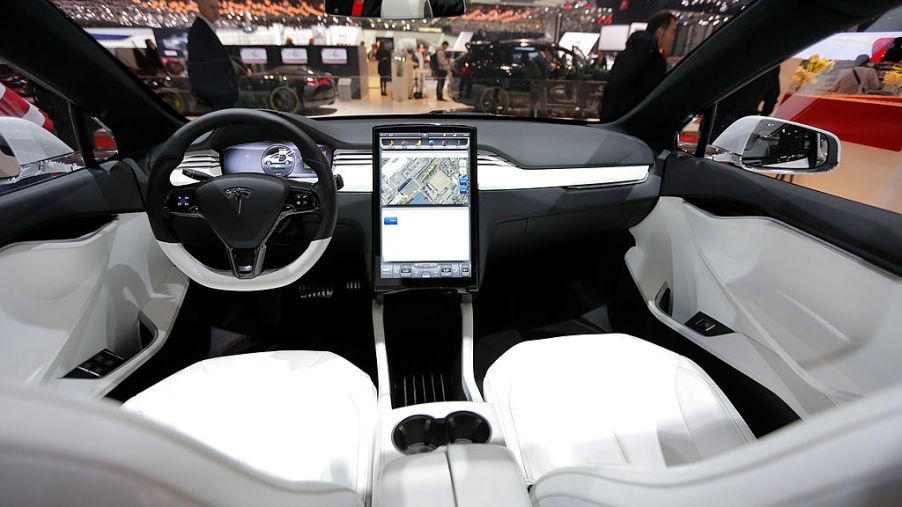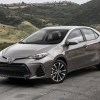
Tesla Pushes to Deliver on Its Interior Promise
From its inception, Tesla has been an innovative force. Its ground-breaking moves in the EV industry revolutionized the automotive world and rattled its competition. Now, the automaker has taken up another challenge, as Car and Driver reports. It has committed to manufacturing its cars without any animal-derived products.
For Tesla, joining the ranks of vegan car makers has been more than four years in the making—a surprisingly long time in its short history. Back in June 2015, a representative from People for the Ethical Treatment of Animals (PETA) pressed Tesla CEO Elon Musk to promise that the Model 3 and the soon-to-be-released Model Y would have cruelty-free interiors by 2020. Three months later Tesla took a baby step and presented the first Model S with leatherette seats.
The hidden challenge Tesla’s interior promise
In 2016, Musk announced that the Model 3 would have an option for a synthetic interior. A year later, non-leather seats were an option in all models. But Tesla faced a serious barrier to offering fully vegan interiors: the covering for the steering wheel, which had always been leather. Buyers could opt for a synthetic-wrapped steering wheel but they had to know to ask because Tesla did not make this option public.
At the June 2019 shareholders’ meeting, Musk told shareholders that synthetic leather-wrapped steering wheels would definitely be standard in the Model 3 and the upcoming Model Y.
But this promise came with a couple of stumbling blocks. First, buyers couldn’t get a heating element on the new steering wheel. Also, Tesla was unsure about the durability of this material given the amount of handling it would get, as compared to the wear on the seats.
In his inimitable way, Musk described how “a lot of oil and sweat and stuff on our hands” made it challenging to find the right protective treatments for the non-leather wheel covers.
Despite this problem, the Tesla CEO assured the shareholders that the new steering wheels would be available “soon.” He also re-affirmed that the Model Y would be free of all animal products.
A breakthrough for the Tesla Model 3
Then, on August 31 this year, Tesla announced that its popular sedan “is now 100% leather-free.” But the automaker’s reasoning behind making this change to the Model 3’s interior goes beyond fulfilling a promise made to animal activists. It has three other aspects: Tesla’s mission, its production considerations, and its competition.
Tesla’s transition to leather-free interiors speaks to Tesla’s commitment as an environmentally-friendly brand. The leather-tanning process uses a toxic soup of chemical compounds that damages the environment. Not to mention, it endangers workers’ health. By losing leather Tesla takes one more step to align its vision with its product.
Another incentive for this decision is that synthetic upholstery simply costs less because the raw or recycled materials are cheaper. What’s more, these materials weigh less, which is a big plus since a vehicle’s weight is usually an important factor. Tesla is making good production decisions by choosing faux leather over cowhide.
Are other car companies leather-free?
Heavy pressure from at least one of its rivals in the luxury market may have also driven this change. The 2020 Porsche Taycan is the German carmaker’s thundering challenge to Tesla’s domination of the EV segment. Porsche threatens to go it one better with the interior options for its big electric coupe. Taycan buyers can go leather-free entirely. Alternatively, they can opt for a sustainably-tanned leather that is processed with olive leaves.
Mercedes, Lexus, and Jaguar are among the other luxury brands that are catching up with the non-leather interior campaign—at least where the car seats are concerned, according to PETA’s list of vegan car options. A more affordable leather-free EV that is not an obvious competitor for Tesla (but maybe should be) is the Nissan Leaf.
And while it’s likely that Tesla will eventually make all of its models leather-free, a few questions remain. Will the synthetic material Tesla chose for its steering wheels hold up over time? Will there be some car buyers who will object when they can’t get leather seats for their Teslas? Most importantly, will the automotive industry follow Tesla’s lead and go fully vegan? Only time will tell.


